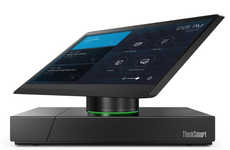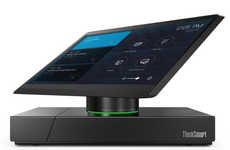



Smart office systems streamline workplace efficiency
Implications - Artifical intelligence is being adapted into various workplace systems in order to enhance the efficiency of specific tasks, and overall employee productivity. These systems are being incorporated into workplaces as companies increasingly understand AI's potential in enhancing human labor, instead of being a replacement for it.
Workshop Question - How could your brand use AI to enhance employee productivity rather than replace it?
Trend Themes
1. Artificial Intelligence in Workplace Systems - Companies are adapting AI technology into various workplace systems to enhance the efficiency of specific tasks, and overall employee productivity.
2. Intelligent Assistants in Professional Settings - Amazon's Alexa for Business is aimed at simplifying tedious tasks such as managing one's calendar, scheduling a meeting or booking a conference room, to help professionals in the workplace focus on bigger-picture projects.
3. Ar-assisted Manufacturing and Training - The use of augmented reality technology in workplace training manuals helps to place step-by-step instructions directly into the field of vision of employees, making the learning process faster and more manageable.
Industry Implications
1. Office Automation - Technological innovations in office automation are disrupting workplaces with AI and AR-assisted systems for tasks such as scheduling meetings, managing calendars and booking conference rooms.
2. Manufacturing - Manufacturing companies stand to benefit greatly from the use of AR-assisted training manuals, as they help make the learning process faster, more effective and less costly, and also reduce the number of human errors and safety-related issues.
3. Gender Diversity in the Workplace - AI-powered smartphone apps like All.ai can address the issue of gender disparity in workplaces by encouraging women to speak up and by reminding men to listen more actively during meetings.







































